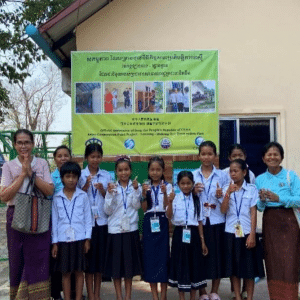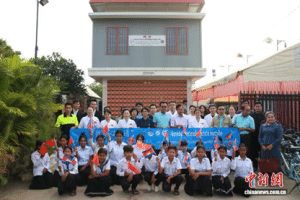This is a summary of an article. Click 善达网 on the right to see the original article in Chinese.
This article argues that China’s Charity Law heralds a new era in philanthropy, which is a strong vehicle for China’s social transformation. It summarizes the new patterns, perspectives, and challenges facing the third sector, as they were raised by some important figures at the eighth China Private Foundation Forum (Jiangsu) recently held in Nanjing.
▼
New patterns
Wang Zhenyao, the Dean of the China Philanthropy Research Institute, claimed during the Forum that the cornerstone of the new era is the philanthropic economy, and the logic behind the philanthropic economy is that social value determines economic value. Social value is becoming an engine of economic development, and this offers enormous space for the development of philanthropy. Qiu Zhonghui, Secretary General of the Amity Foundation, restated the increasing impact of the three values of the philanthropic causes of the future: firstly, stabilizing society by meeting the urgent needs of the disadvantaged; secondly, driving the improvement and transformation of social causes and social industry by promoting social welfare; thirdly, strengthening social cohesion by advancing social morals.
▼
New perspectives
The growing Chinese philanthropic sector will certainly have a more important role to play in the international arena, even a leading one, according to Wang Zhenyao. Chinese philanthropic organizations and projects are expanding abroad. A prominent example is the Amity Foundation’s two overseas offices in Ethiopia and Switzerland. Meanwhile, Qiu Zhonghui’s vision is one of ‘philanthropy by everyone’. He considers China’s large population to be an advantage, as the Internet connects individuals with philanthropic organizations.
▼
New Challenges
The Charity Law opens up the right to public fund-raising. This will bring more competition to the sector and higher requirements for philanthropic organizations’ capacity and branding skills. However, Qiu Zhonghui also pointed out the importance of cooperation, and in particular of sharing resources. Organizations with abundant resources should provide platforms for smaller grassroots organizations.
Zheng Fei, a prominent NGO activist, believes that the Internet also allows donors to supervise and question philanthropic organizations more easily. The organizations are thus under pressure to be more transparent, efficient, and competent.



